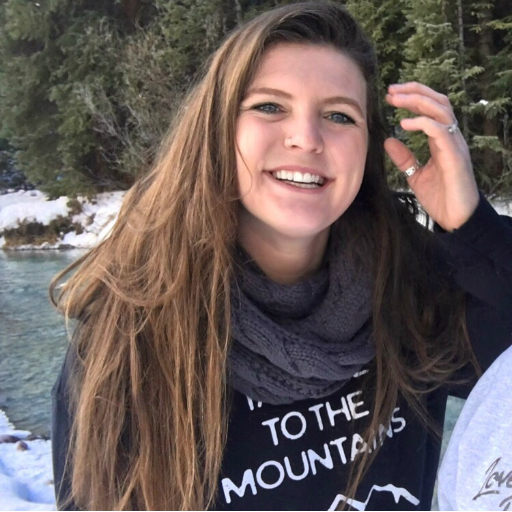It’s Mental Health Awareness Week and it’s something that’s very near to my heart, especially mental health in student athletes.
I’ve been an athlete since I was born, basically. I was put on every and any team since I was eligible to play. Sports became my own personal form of therapy, like a lot of other athletes. I continued to be a three-sport athlete in high school and carried my career to the collegiate level.
Playing college lacrosse was the best decision I’ve ever made and I don’t regret a second of my four years, through the highs and lows. It brought me my best friends and my best memories, but this being my first year as a retired athlete made me think about some of the times that weren’t so great.
I strongly believe being a student athlete made me viewed differently by my peers and professors. Student athletes are meant to be tough, mentally and physically tough. We are expected to excel in the classroom, in extracurricular activities and definitely in our sport.
We are held to higher standards than other students, or so we have been repeatedly told. We are told we are leaders and role models, that we represent not only ourselves, but also our school and our sport. We are expected not to mess up and if we do there are consequences from multiple places.
As athletes the only thing we aren’t supposed to be perceived as is weak.
We are supposed to be strong and leaders.
We aren’t supposed to suffer from mental illnesses like depression or anxiety, but the fact of the matter is we do. We’re still human. I have first handedly experienced it time and time again, and it’s heartbreaking.
We are told repeatedly to leave any outside thoughts off the field, we are told not to think about anything but the drill we are doing, to devote all our attention to practice. And to be honest we would never think to ask our coach for a day off to cater to our mental needs because that isn’t something you can see.
We are just expected to forget about everything that is destroying us internally because it just shouldn’t matter for the hours you’re practicing and training.
You can’t see depression like you can see a broken arm. You can’t touch anxiety like you can touch a sprained ankle. You can’t see mental illness so we pretend it isn’t there, we pretend that for a few hours a day that it isn’t there, but it is. It’s there and it’s real.
It’s watching your teammates break down in front of your eyes at practice because they were trying to push through finding out a relative got cancer. It’s watching your teammates wipe the tears from their eyes claiming they’re fine when they’re fighting the voices inside their head. It’s watching your teammates have to run off the field to pull it together because they just got cheated on and sunk into a deep depression. It’s listening to your teammates repeatedly convince you they’re fine when you know they struggled to pull themselves out of bed to get to practice.
And it’s not having any time off the grieve your experiences and improve your mental health.
It’s not just my teammates who have experienced this, I’ve experienced it and I know others who have experienced it. I’ve had anxiety so bad that I’ve had to pull myself out practice because I couldn’t breathe or stop the tears from streaming down my face for no reason.
Mental health in student athletes is a real thing; being a student athlete doesn’t make you immune to mental illness and statistically on my team of 20 last year six of us would be struggling with mental illness. That is alarming. That is something that needs to be talked about.
Athletes are tough; we are born and breed to be tough. We are tested to our limits and we push ourselves past those limits, even when we didn’t think it was possible. We break ourselves in order to become stronger; our strength is not the issue.
The issue is we don’t get a break because you can’t see the mental suffering. We don’t get a break to heal emotionally or mentally.
We’re taught to push through everything. We’re taught that in the “real world” at a job it wouldn’t fly, you’d still have to get up and go to work, even if you were upset, and that we’re just being prepared for the “real world.” But in the “real world” you get sick days. You get time off when you’re ill, whether that be physically, emotionally or mentally.
Athletes don’t get breaks.
When you’re a student athlete you’re not allowed to have off days. You’re not allowed to have days off because you made a commitment to your team and your sport. You decided that when you came to college to play a sport that you were going to put your sport first – or second, but only to classes.
You signed up for long days and longer nights trying to study and cram for exams. You signed up for balancing your sport with school and a work-study or another job. You signed up for what you’re going through, so you should just deal with it. And you do because you love your teammates and your sport.
Athletes are expected to be positive and role models and leaders, but sometimes all they need is someone to lead them and guide them. Someone to ask them if they are okay and if they need a break.
A true athlete by nature won’t milk it, they won’t skip out any training when they’re feeling fine, but it’s the days that you’re in bed and you can’t move because the depression has shook you to the core. Or the days you have a full on anxiety attack and you can’t calm the feelings running haywire in your body.
It is real and it is important to talk about. Mental health is not something we should overlook and it’s a stigma we need to talk about. It does not show signs of weakness and it is absolutely real in athletes.
We continue to push through the pain because of how passionate we are about our sports, but I believe it’s time to stop pushing through the pain and start treating mental health like we would a torn hamstring.
Even though you can’t see it doesn’t mean it’s not real. ![]()







